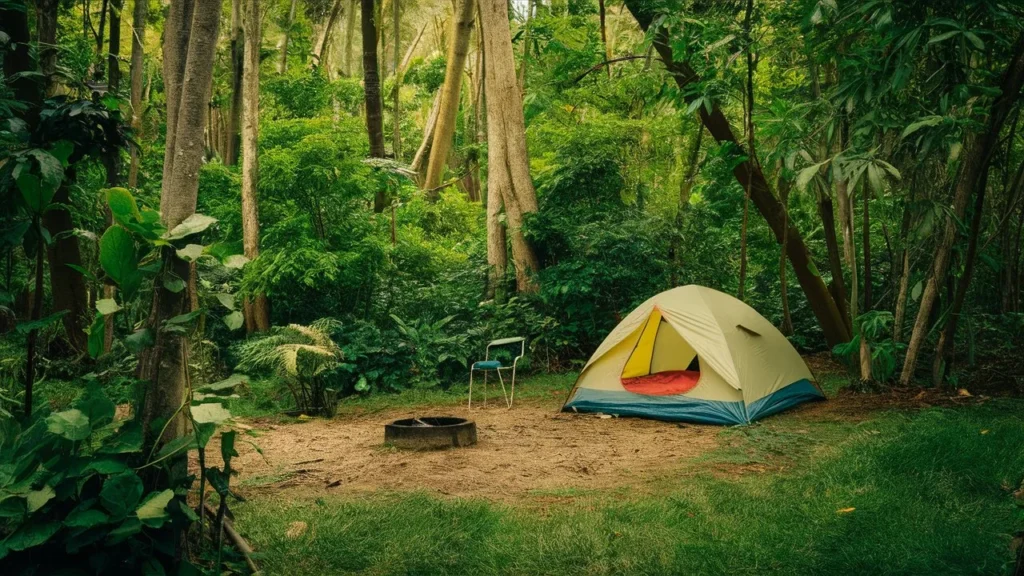How to Practice Leave No Trace Principles While Camping?
Camping is a wonderful way to connect with nature and enjoy the great outdoors. However, it’s crucial that we do so responsibly to preserve these natural spaces for future generations.
The Leave No Trace principles provide an excellent framework for minimizing our impact while camping. Let’s explore how to put these principles into practice on your next camping trip!
Plan Ahead and Prepare
Before heading out, take time to research your destination and properly prepare:
- Check regulations and special concerns for the area you’ll be visiting
- Prepare for extreme weather, hazards, and emergencies
- Schedule your trip to avoid times of high use when possible
- Repackage food to minimize waste
- Use a map and compass to eliminate the need for rock cairns or flagging
Proper planning helps you avoid unexpected situations that could lead to environmental damage.

Travel and Camp on Durable Surfaces
To minimize your impact on vegetation and soil:
- Stick to established trails and campsites
- Walk single file in the middle of the trail, even when wet or muddy
- Camp at least 200 feet from lakes and streams
- Keep campsites small and focus activity in areas where vegetation is absent
- If camping in pristine areas, disperse use to prevent the creation of new campsites
- Dispose of Waste Properly
The “Pack it in, Pack it out” motto is key:
- Pack out all trash, leftover food, and litter
- Use designated bathrooms or catholes dug 6-8 inches deep at least 200 feet from water sources
- To wash yourself or dishes, carry water 200 feet from streams or lakes and use small amounts of biodegradable soap
- Scatter strained dishwater
- Leave What You Find
Preserve the past and leave nature as you found it:
- Observe but do not touch cultural or historic structures and artifacts
- Leave rocks, plants, and other natural objects as you find them
- Avoid introducing or transporting non-native species
- Do not build structures, furniture, or dig trenches
- Minimize Campfire Impacts
Be cautious with fire to prevent wildfires and long-lasting impacts:
- Use a lightweight stove for cooking and enjoy a candle lantern for light
- Where fires are permitted, use established fire rings, fire pans, or mound fires
- Keep fires small and burn all wood and coals to ash, then scatter cool ashes
- Consider going completely fireless to eliminate impact
- Respect Wildlife
Observe wildlife from a distance and do not feed animals:
- Control pets at all times or leave them at home
- Store food and trash securely to avoid attracting animals
- Avoid wildlife during sensitive times: mating, nesting, raising young, or winter
- Be Considerate of Other Visitors
Respect other visitors and protect the quality of their experience:
- Be courteous and yield to other users on the trail
- Take breaks and camp away from trails and other visitors
- Let nature’s sounds prevail by avoiding loud voices and noises


By following these Leave No Trace principles, you can enjoy a fulfilling camping experience while helping to preserve the natural beauty of our outdoor spaces. Remember, small actions can have a big impact when it comes to protecting the environment. Happy (and responsible) camping!